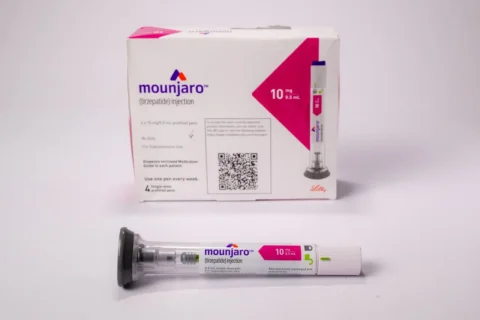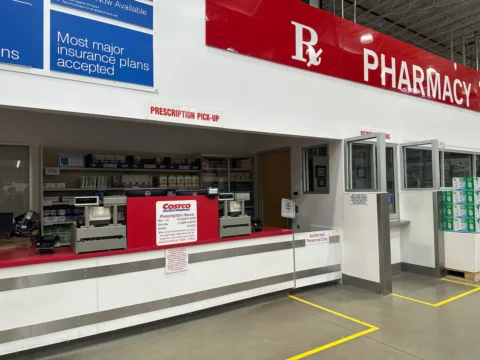If you’ve decided that weight loss medication may be a good option for you, but you’re uncertain if online prescriptions are a smart option, you’re in good company. When it comes to making wise healthcare choices, savvy consumers ask questions about quality, accessibility, and comfort before deciding. Let’s review the pros and cons of receiving medicated weight loss care through telemedicine, plus what you should expect from a trusted online provider.
Are telemedicine weight loss prescriptions a good option?
Telemedicine weight loss prescriptions can be a reliable, convenient option. There are many benefits to getting weight loss medications, like Ozempic, through a trusted online provider:
Expert Care
- Telemedicine providers who practice online have experience delivering weight loss care via video visits.
- If you choose a reputable medical provider, you’ll have access to experts who are well-versed in treating obesity and excess weight.
- You don’t have to feel like you’re doing this alone. There are many online resources to support you all along your weight loss journey.
Convenience
- You can reclaim some of your time by scheduling visits when it’s convenient for you—and conduct the appointment right on your phone, wherever you happen to be.
- Skip the hassle of finding child care then driving, parking, sitting in a waiting room, and dealing with multiple people. Instead, you can click a few links and talk directly with a provider about your weight goals.
Safety and Comfort
- Your digital records will remain confidential, just as they do in a brick-and-mortar healthcare office that you might visit.
- When seeking care for a disease that comes with stigma, as obesity and being overweight often do, many patients find that virtual care scenarios provide a more comfortable environment in which to talk openly and honestly about personal experiences.
Are there downsides to using telemedicine for weight loss?
There are a few scenarios in which telemedicine care may not be ideal for you:
- If you have limited access to an internet connection, or to a computer or cell phone, telemedicine may not be a feasible option.
- Some patients prefer an in-person medical visit if they feel they need an in-person exam.
- If any part of your health status (including weight, diabetes, or blood pressure) puts you at high risk for heart attack or stroke, we recommend working closely with trusted health practitioners in person.
Do telemedicine providers offer high-quality care?
Yes! Seeing a provider virtually has come a long way in the past few years, and the vast majority of telemedicine patients are very satisfied with the attentiveness of their provider and the high level of care they receive.
Telemedicine providers rely on you to communicate your health history, the treatments you’ve already tried, and the symptoms and struggles you are currently facing—all of which can be clearly communicated via face-to-face video call.
What weight loss medications do online doctors prescribe?
Your telemedicine provider will assess your health history, current medications, previous weight loss attempts, and sometimes current lab results in order to prescribe the medication that is best suited to help you meet your goals safely.
Some of the most common and effective drugs being prescribed for weight loss today are GLP-1 agonists. These can be broken down into 2 main groups:
Newer GLP-1 drugs
- Ozempic (semaglutide) once-weekly injection; FDA-approved for type 2 diabetes
- Wegovy (semaglutide) once-weekly injection; FDA-approved for weight loss
- Rybelsus (semaglutide) once-daily pill; FDA-approved for type 2 diabetes
- Mounjaro (tirzepatide) once-weekly injection; FDA-approved for type 2 diabetes
- note: tirzepatide is a dual GIP/GLP-1 agonist
- Zepbound (tirzepatide) once-weekly injection; FDA-approved for weight loss
- note: tirzepatide is a dual GIP/GLP-1 agonist
Older GLP-1 drugs
- Victoza (liraglutide) once-daily injection; FDA-approved for type 2 diabetes
- Saxenda (liraglutide) once-daily injection; FDA-approved for weight loss
- Trulicity (dulaglutide) once-weekly injection; FDA-approved for type 2 diabetes
- Byetta (exenatide) twice-daily injection; FDA-approved for type 2 diabetes
- Bydureon (exenatide) once-weekly injection; FDA-approved for type 2 diabetes
The notable advantages of the newer GLP-1 agonists are that they are longer acting and generally more effective than the older GLP-1 agonists.
You can see from the list above that only three brand names—Wegovy, Saxenda, and Zepbound—are FDA-approved for treating obesity and overweight, but because type 2 diabetes and obesity are closely linked metabolic conditions, any of the medications listed above can be prescribed by a doctor for the purpose of weight loss (in patients who meet certain conditions and for whom it is deemed appropriate).
Can online providers be trusted?
As with the staff working in hospitals, clinics, and healthcare systems in your local area, most of the online doctors and medical providers you’ll meet are caring, professional, and have your best interest in mind . . . but there are companies and individuals out there who will take advantage of you if you give them the chance, so it’s always a good idea to research and compare to find the best option.
Keep the following questions in mind when looking for a telemedicine provider that offers weight loss prescriptions:
Is medication actually offered—or is “access to medication” offered? Check to see if the price you’re paying includes the price of the medication or only the provider’s prescription for the medication.
Are brand-name and non-branded medications offered? If medication is included in the price of your treatment, is it brand-name medication, such as Ozempic or Rybelsus, or a non-branded drug from a licensed compounding pharmacy? More options means finding the solution that’s best for you.
Are the services you need (and only the services you need) offered? Find a telemedicine platform that offers the blend of products and services you need. Ask yourself what’s important for your provider to offer and ensure they can give it to you. Likewise, there’s no reason to pay for extra services you won’t use.
Are there any hidden or additional fees? Upfront, clear pricing for products and services is a sign of a trustworthy telemedicine provider.
Do existing patients keep coming back? One of the best indicators of great care is that patients keep returning to the same telemedicine provider.
Looking for a trusted online provider for weight loss care?
Telemedicine weight loss prescriptions can be a reliable, convenient option—but it’s important to choose your telemedicine site carefully. Don’t be afraid to be picky, to know exactly what is covered in the cost of care, and to get answers to all your questions before you decide on a provider.
Want to learn more? Check out our articles about medicated weight loss, or visit our weight loss treatment page to see the weight loss care options that QuickMD has to offer.




